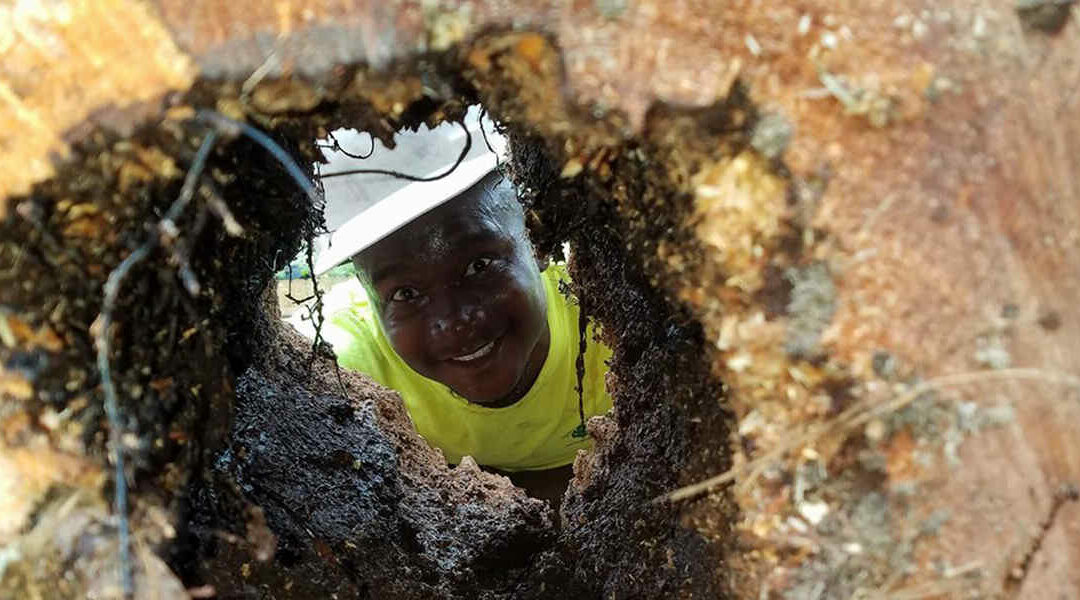Discovering holes in your trees requires prompt attention to protect your tree’s health and vitality. So, what makes holes in trees?
As the go-to tree service company in Mobile, AL, the Tri-State Tree Service crew explores the primary tree cavity causes that every tree owner should know.
Pinpointing the Culprit
Small holes in the trunk of your tree may not mean impending death, but that the tree is in a state of decline. You can usually determine the likely culprit based on the size, number, and arrangement of holes.
The hole’s size may vary from very small up to about 3/8 inches. Tiny holes in evergreens often point to a type of back borer. Slightly larger holes in deciduous trees may indicate a type of wood-boring beetle, while larger holes suggest woodpecker activity.
Beetles and borers bore holes in a tree to lay their eggs. Young borers can chew through the wood, disrupting your tree’s ability to transport food and water. This often causes rot and decay in trees that could kill the tree.
As the beetles reach adulthood, they emerge from the tree, leaving behind additional tiny holes.
The number of holes matters as well. Just a few random holes shouldn’t raise as much alarm as numerous holes would. Unfortunately, some species of bark beetles emit pheromones that attract many more insects.
What makes holes in trees? Consider the arrangement of holes. Smaller holes that appear randomly point to some insect boring holes. Random ragged holes could be the result of woodpecker damage.
However, if you notice small holes in neat, uniform rows, you likely have sapsuckers (a type of woodpecker that feeds on the sap of living trees).
What Can You Do?
Typically, your tree will recover from limited and minor damage, but repeated injury to a specific location can predispose the tree to fungal infections and environmental stress.
Fungal infection in trees can weaken their structure, hinder growth, and ultimately lead to premature death if left untreated. The same applies to environmental stress in trees.
You can proactively treat your trees to rid them of insects and borers, but you’ll likely need to remove the tree if symptoms are at advanced levels.
Birds will only cause significant long-term damage if they continually target an individual tree. The Federal Migratory Bird Treaty Act protects migratory, non-game birds like woodpeckers, which makes it illegal to kill them.
Consider using predatory bird mimics, sticky repellants, aluminum foil strips, or barriers like plastic netting to scare or inconvenience woodpeckers from further feeding in that location.
Trust Your Local Tree Care Experts
Now that you know what makes holes in trees, look to Ti-State Tree Service for all your tree care needs. Besides having certified arborists on staff with decades of experience in the tree care industry, we maintain a solid reputation as the premier Gulf Coast arborist. Our clients count on us for:
- Tree trimming and pruning
- Tree removal
- Stump grinding and root removal
- Emergency services and storm cleanup
Contact us, Tri-State Tree Service, at (850) 876-8003 to request a free estimate for tree services in Mobile, Alabama, and beyond.


